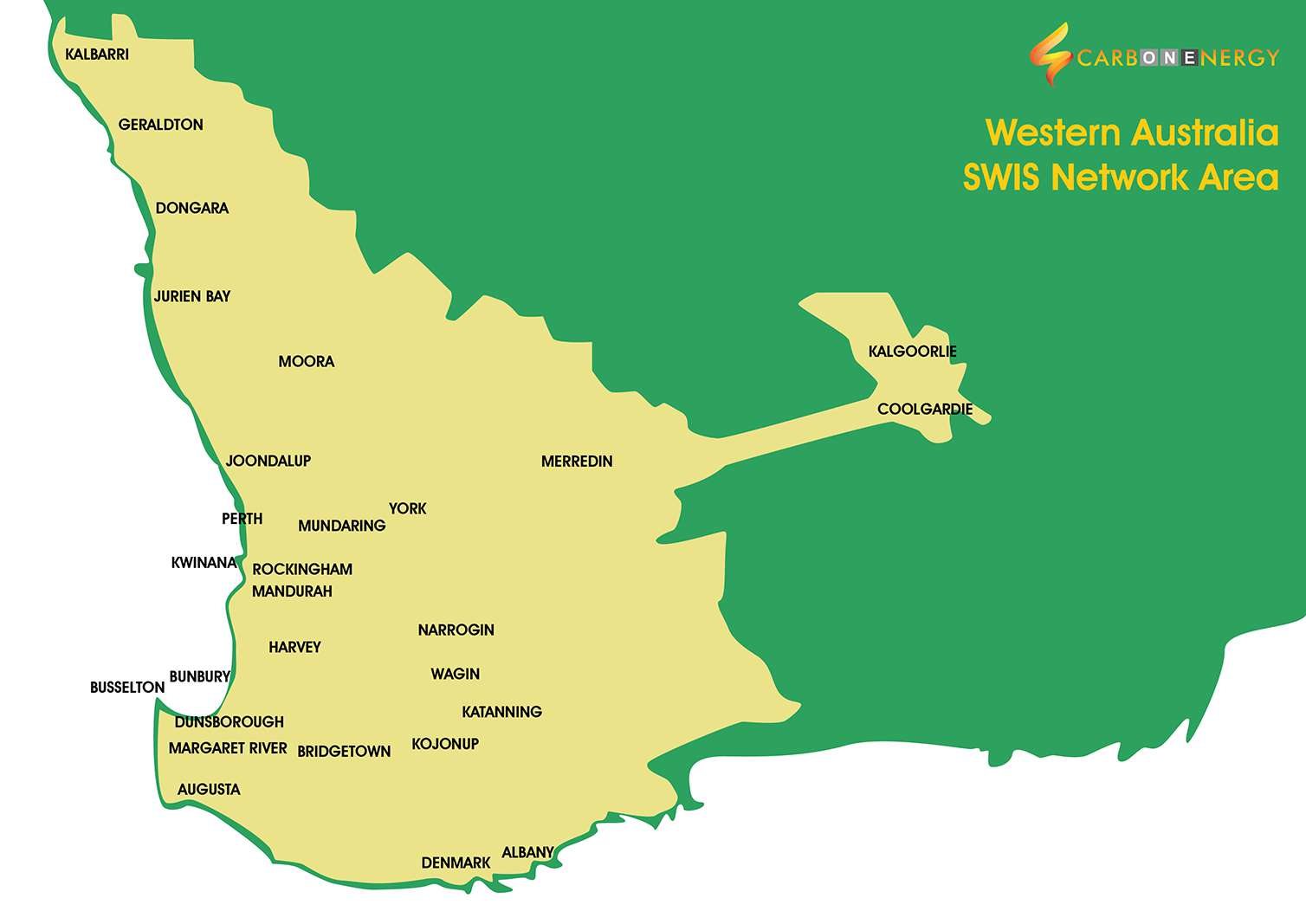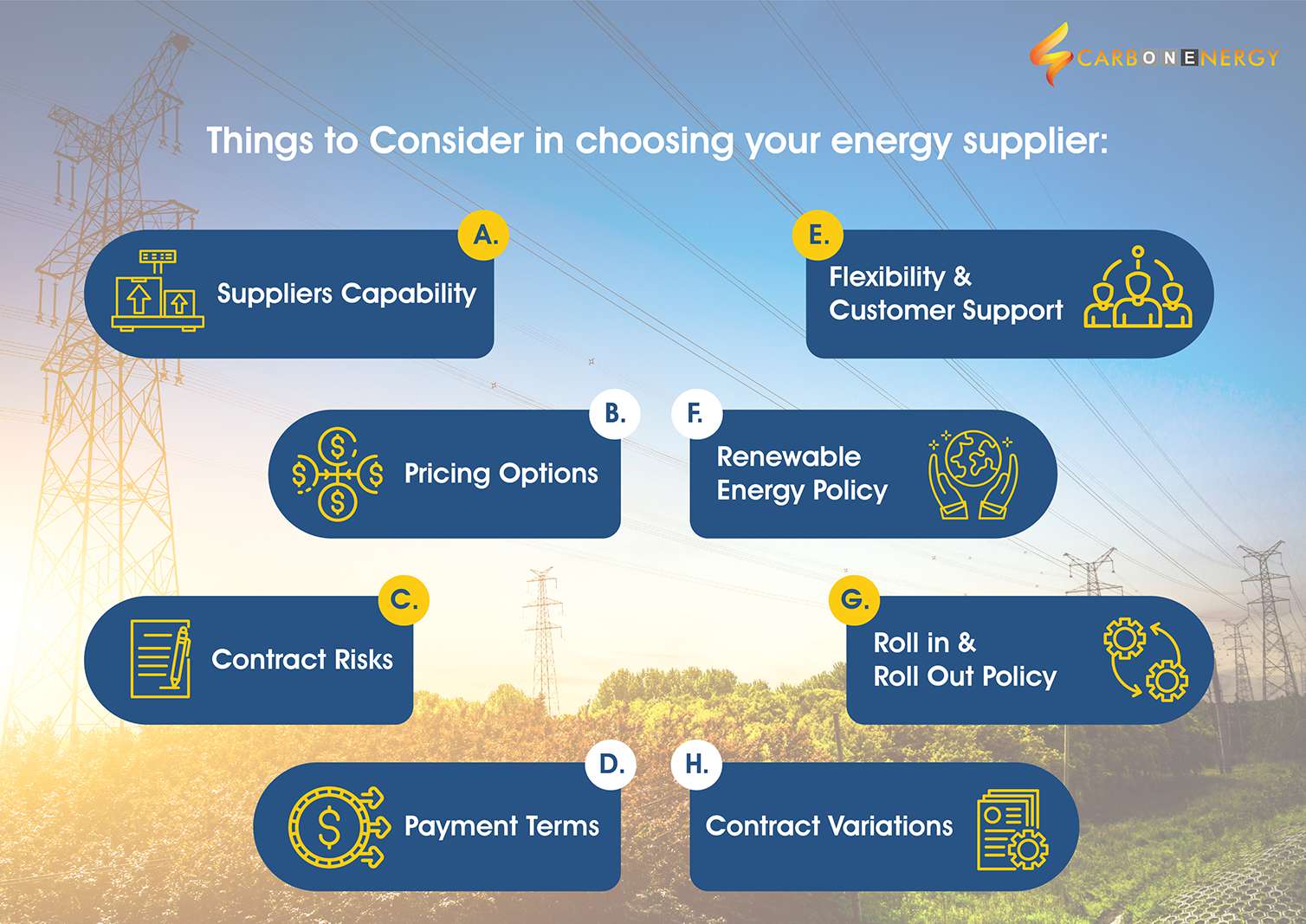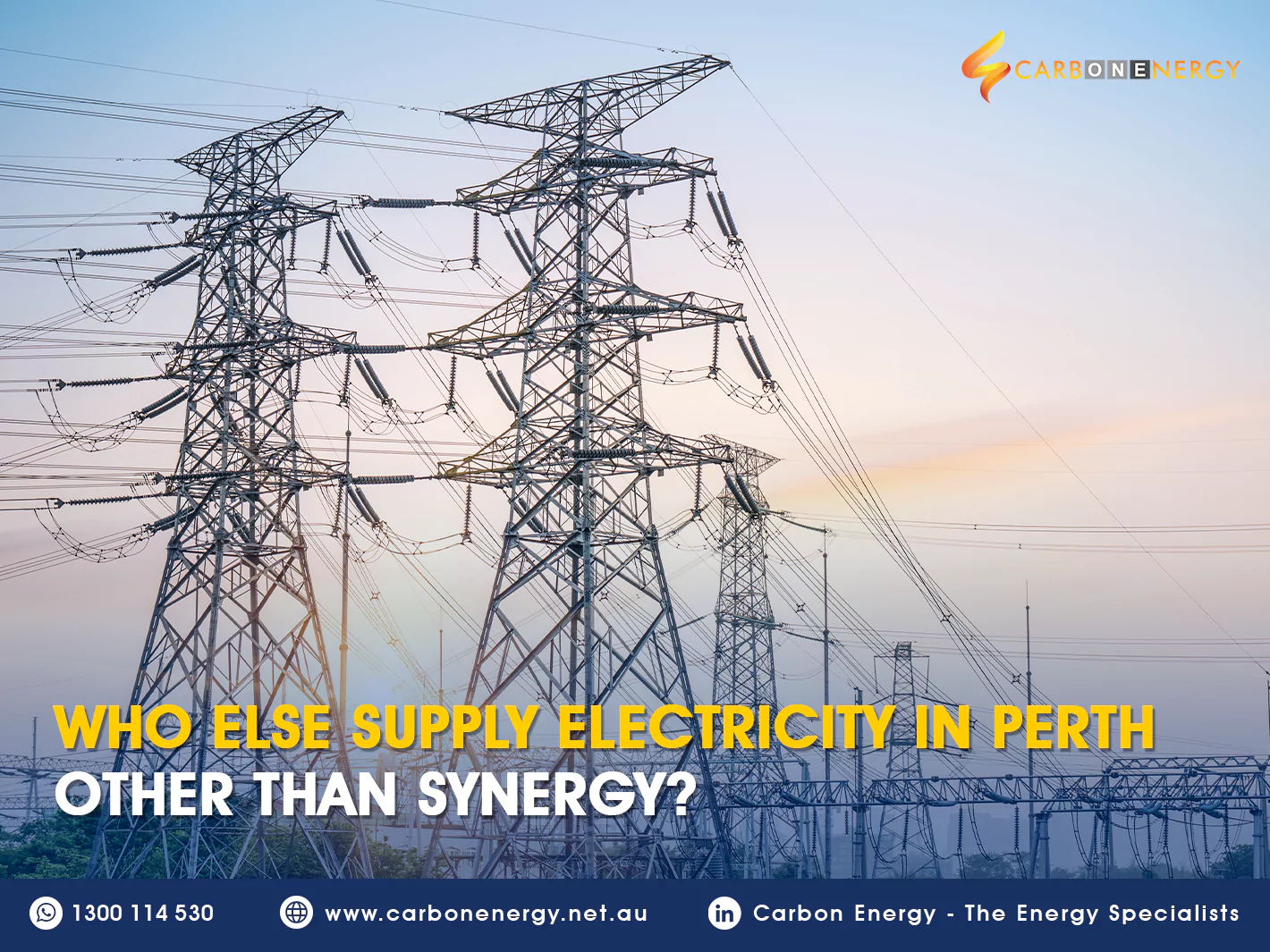Choosing the Best Electricity Supplier for Your Businesses
Have you ever considered switching your business electricity supplier? Today we take a closer look at how the energy market works in Western Australia; this will help you find the most suitable electricity supplier for your business.
Western Australia has more than five electricity suppliers; this opens fierce competition amongst the suppliers with such a vast and dynamic market.
Each electricity supplier tries their best to deliver the best service for their customers. This provides an opportunity to you as a customer to secure a more competitive.
In this article, we break down the key elements that you need to consider before choosing the electricity supplier for your business.
Read more about Bundled vs Unbundled Contract options and find that one suits your business the most.
Before we start diving in and finding out who is the best Perth based Electricity Supplier and what strategy to use to find the one that suits your needs. It is good to know the bigger picture first, here is the breakdown below:
- How The Energy Market Works in WA?
- Residential vs Commercial Customers vs Contestability
- How to Choose The Best Electricity Supplier?
1. How The Energy Market Works in WA?
As we have mentioned earlier, Western Australia does things a little different if compared to the Eastern States when it comes to energy regulations. There is a mountain of requirements regarding Gas and Electricity supplies and how the energy suppliers may service their customers. These differences regulate both how the energy suppliers operate and the type of customers they are allowed to offer their service to.
Western Australia’s energy market operates separately from the National Electricity Market, which means the WA Government manages and regulates the energy market in the state itself.
This may not sound very clear, as there are slight differences between the WA Energy market and the rest of the National Energy Market. The regulations draw a line on the critical distinction between WA electricity consumers.
To help you understand more about the regulations for WA Electricity Market, we will summarise the two key factors that will determine your eligibility for access to the electricity suppliers in Perth WA; your business’s Contestability and the boundary of the South West Interconnected System (SWIS) area network.
For most of the WA residents, these regulations are assigned by Western Power, which oversees the entirety of the urban area. Learn more about Western Power’s Retailer Connection Regulations to know your options in energy procurement.
The electricity suppliers in Perth WA utilise the network under the management of Western Power. The entire network system is called the South West Interconnected System or SWIS for short.
The SWIS covers the most populated area of Western Australia, from the Southwest coast to as far North as Kalbarri. This means only customers who live within the SWIS area may benefit from the WA-based electricity suppliers’ service.
Outside the SWIS area, the electricity network is supplied by Horizon Power, the only retailer that supplies electricity (for both business & residential) in most regional areas outside of the SWIS area.
For those outside this SWIS area they are all part of the Network that is supplied by Horizon Power and will have to stay with the rules and regulations assigned by Horizon Power.
As mentioned above, customers within the SWIS area have access to broader options of electricity suppliers given that their annual electricity consumption meets the required standard to engage in a business electricity contract.
For customers located within the SWIS area and who have fulfilled the contestability requirement will be able to have cheaper electricity rates with fixed terms and conditions to accommodate their business needs.
Find out how you can negotiate a better business electricity contract at NO COST to you!
2. Residential vs Commercial Customers vs Contestability
The electricity suppliers in Perth WA categorise the customers into two categories: the contestable and the non-contestable.
WA residents can only stay with Synergy (The Government backed & owned supplier), they enjoy one of the subsidised tariffs from Synergy.
On the other hand, contestable business customers are allowed to choose their preferred supplier.
There are two factors to be contestable: your location and the total amount of your annual energy consumption.
Customers are non-contestable if they are located outside the South West Interconnected System (SWIS) area, a network extending to the coast in the South and West, to Kalbarri in the North and Kalgoorlie in the East. Aside from the geographic location, customers who consume less than 50 megawatt-hours (MWh) or approximately $14,000 per annum of electricity each year are categorised as not contestable.
As the average household only consumes around 6 megawatt-hours per year, virtually all residential customers and most small business customers within the SWIS area are non-contestable.
Read more about BIG PROBLEMS in managing electricity tenders.
3. How to Choose The Best Electricity Supplier?
If your business use more than 50 MWh of electricity annually or approximately $14,000 and operates within the SWIS area, it can be considered contestable, and you will have more choice of electricity suppliers: Amanda Energy, Infinite Energy, Shell Energy, Synergy, Alinta Energy, Change Energy, and Perth Energy.
Then what differentiates the Electricity suppliers? How to find the one that will accommodate your business’s energy needs?
Based on years of experience, we summarise the differences between the suppliers into these categories,
In short, below are some of the factors you must consider, if you wish to compare electricity suppliers:
- Suppliers Capability;
- Pricing Options;
- Contract Risks;
- Payment Terms;
- Flexibility & Customer Support;
- Renewable Energy Policy;
- Roll in & Roll Out Policy;
- Contract Variations.
As an electricity supplier, they must ensure they have the manpower to service you beyond billing your account. Any issue such as metering must be addressed quickly. Customer service should be part of it to ensure all the changes in the energy market will be taken care of to give you the peace of mind to focus on your business. Ideally, your account should be managed by a dedicated team or personnel with a goal to deliver the best service possible.
b. Pricing Options – Bundled, Unbundled or Dual-fuel?
As a part of their service, the supplier must be able to come up with a detailed plan of recommendations on what your energy plan should be. To cover all the possible risks and ensure efficiency of your energy consumption is always cost-effective.
Please note that different types of businesses have different load profiles, a type of consumption patterns that the suppliers use to categorize their customers and then bill you based on these patterns. Always keep in mind that there are two types of energy contract options available, bundled options where all the costs and charges are calculated as a whole (which is easier for business owners to understand).
Unbundled options where all the factors in an energy bill are charged separately (this means it requires in-depth understanding of the energy market to ensure you will not be billed by the sudden changes in costs and charges involved. However, if your business consumes both gas and electricity with considerable amounts then it might be in your best interest to apply for a dual-fuel contract option by having both supplied by the same energy supplier. This will help you to reduce the prices the supplier charges by ensuring both your energy consumption is looked after with the one supplier.
c. Contract Risks – Shortfall, CPI, and Pass Through
Over the years, most cases that found to be a risk were to do with the Minimum Take/Shortfall charges. When dealing with an electricity supplier, they will assess your energy consumption daily, weekly, monthly, and annually. This allows them to come into an agreed volume of consumption allocated for your business or, in the suppliers’ fancy term (Business) Load profile.
It means you have a certain amount of energy requirement or standard for the MINIMUM amount of energy you use over an annual period failing to meet this requirement will result in the SHORTFALL charges based on the agreement on the contract. Please refer to your existing energy contract to be more precise on the penalty.
Another essential point to take note of is the existence of Pass-Through Charges. If there are any changes in the Government regulation, the Supplier will Pass it through to you, the customer.
This is a common practice in the Energy market but still annoying when you suddenly are billed for something you probably are not even aware of. Be meticulous about this to ensure that you always have a firm understanding of what you pay and what you are charged for.
d. Payment Terms – Direct debit, 14 days, 30 days terms
Managing or owning businesses is tough and there are many demands. Find a supplier that will be able to accommodate your busy schedule, the one that understands the struggle you have to secure the survivability of your business in these trying times. Where sometimes you have to wear ten caps at the same time, this makes it hard for you to keep track of the small things. Like your bill payment, generally the electricity suppliers in Perth WA offer direct debit for your payment plan.
However, there are also suppliers who offer longer payment terms. We found that some suppliers even offer 14-days up to 30-days payment terms. Hey, if you are struggling to keep your business and life afloat then this is definitely what you need to have.
There are 3 forms of fee that you need to be aware of concerning your payment options. First, you have the Dishonor fee which will incur if you have insufficient funds in your bank account when a direct debit payment is due. Second, Late payment fee which will add extra charges if you pay your bill late. And Lastly, Credit Card fee for paying by some Credit providers.
Please feel free to speak with one of our energy specialists; if you are unsure about any fees that appear on your bill.
e. Flexibility & Customer Support
In these hard times, there is no such thing as certainty. We must always be prepared for any sort of future development. One of the most common complaints from WA business owners is the lack of flexibility and support. These complaints are especially voiced by business owners who sell their business, or when they need to relocate into or out of their premises.
In terms of both cases, selling the business and moving premises sure is hard and not easy.
Many processes are involved and sometimes the suppliers can be quite hard to deal with. There are various reasons why businesses need to relocate. The premises may be too big or too small for your operations or you may require a smaller area to minimise operational costs. It could be because the lease has expired and you need a bigger office space because of your business expansion.
Some main concerns are the Early termination charges, these charges will be billed if you are leaving your contract early. The amount of the bill may vary depending on the agreement with your electricity supplier. Another case we often find is the Disconnection or reconnection charges, these are charged if you default on many payments without advising your retailer of the problem and could be costly not only on your bill but also to the operation of your business. These charges are still negotiable but WA electricity suppliers have different policies and may waive the need of these charges, or not.
Still, having the flexibility to provide the best customer support is something that you need to consider when choosing your electricity supplier for your business.
f. Renewable Energy Policy – Solar Investments
Solar? Oh No not Solar! This is what we hear all the time. As WA is now gearing up for a greener and renewable energy sector, now is the time to look at Solar. Is this something that you have been interested in for quite some time? However, do you worry about the amount of money and the risk involved in investing in solar?
Please take note that most of the WA electricity suppliers have also started to pick up that Solar is here and they try to accommodate their customers in their endeavours. However, be advised that there are suppliers that will impose a penalty if you add solar while your contract is still ongoing. They will also re-asses your rates to make up for the electricity you are not using from them anymore.
Nevertheless, it does not mean it is a bad idea, many electricity suppliers also take interest in having their customers adding solar. Their attempt included the Solar-Feed-in tariff.
Although this is an exciting offer, be thorough with your calculation and never be hasty in making your decision. Solar is a very costly and challenging investment. Make sure you get the best Return on Investment through it while also enjoying much cheaper electricity in the long run.
When you engage with your energy supplier, they are profited by the amount of energy you consume and ideally, the more you consume the more they benefit from you. Often we find WA business owners who own multiple sites find it hard to manage their contract since the rates and T&Cs might vary from one of their sites to another.
This raises a question in your mind: Will I get the same rates if I add additional sites or close some sites if you have multiple sites? What advantages do I have?
To answer those questions; yes, there are electricity suppliers in WA who are willing to discount your electricity rates if you bring multiple sites into the mix and will offer you some perks, like dedicated personnel to manage your account. However, this only applies if you fulfill certain requirements (which vary from one supplier to another) such as number of sites in contract, amount of consumption in each site and the total consumption as a group. Be meticulous though, this can be a huge saving opportunity for you.
WA business owners, if you have found the supplier that fulfills the criteria as mentioned above then you might want them for a long period. However, in some cases you might want to try to see if they are as good as advertised. This brings up questions about the length of your contract, for example if you need to move out of your site because the lease expires in 1 year or if the company will be acquisitioned soon.
Then what to do with your electricity contract? Please calm down; there are electricity suppliers in WA who are more than willing to accommodate either shorter or longer periods. You might want a longer contract, as you want to lock in your rates for as long as you can there are options like 1 year up to 3 year contract.
If you feel the need to switch your electricity supplier because the rate is too high or unhappy with the terms and conditions imposed on you, feel free to use Carbon Energy’s Free Energy Tender service. You will be surprised at how easy and beneficial it is!
Less Hassle in Managing Your Energy Account Through an Energy Broker
Carbon Energy is here to assist you in your energy procurement process. To provide you with the peace of mind you need to focus and run your business.
Our energy specialists possess immense knowledge and vast experience in the energy market. Promising you a less hassle and more efficient tender process, we present in-depth analysis of each offer from various energy suppliers in Western Australia.
Our approach is straightforward, risk-free and NO COST to you or your business. The successful supplier remunerates us should you accept our recommendation.
Save your time and money! We do all the painful work for you. We access you the best solutions in the easiest, secure and most convenient way possible. Haven’t used an energy consultant yet? Why wait any longer?
Whether you are looking to save on electricity or gas, or commercial solar, we can assist you in finding the best deal for your business needs.
Please speak to one of our energy specialists to get a free energy cost audit (valued at $2000) on 08 6460 1613.










